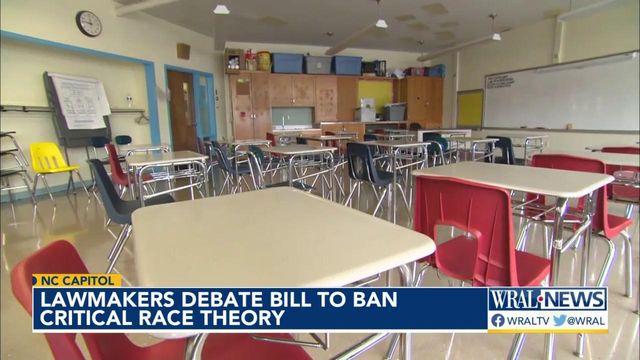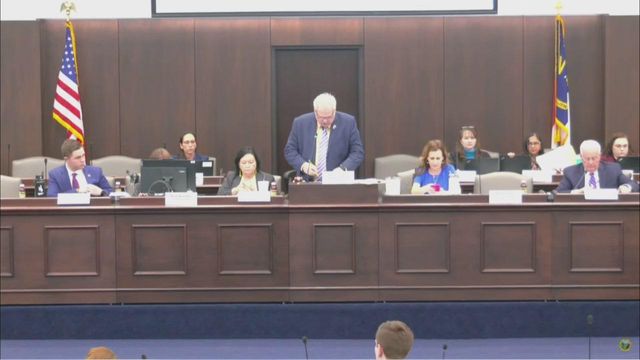Bill limiting how race is taught in K-12 schools advances in NC House
A bill to ban North Carolina schools from teaching about systemic racism or white privilege is headed for a vote on the state House floor after passing a key committee along party lines Tuesday. Republican state lawmakers passed a similar bill in 2021, but it was vetoed by Democratic Governor Roy Cooper.
Posted — UpdatedDemocrats lost seats in the 2022 elections, narrowing their margin to uphold a veto to a single House seat this session. That's given the bill's backers renewed hope.
The bill, which now heads to the House Rules and could be on the state House floor for a full vote Wednesday, would ban K-12 schools from promoting the idea that any race or sex is “inherently superior,” and or that anyone should feel guilt or discomfort for "actions committed in the past by other members of the same race or sex."
It also forbids schools from teaching that anyone has “privilege” on account of their race or sex, or teaching that the United States is racist or sexist, or advocating for the violent overthrow of the U.S. government.
The bill doesn’t mention critical race theory, or CRT, which is the study of systematic racism — a topic that has become the focus of legislation across the country and a frequent topic for right-wing media outlets. But it refers to concepts common to that graduate school-level framework for cultural critique. CRT is not taught in K-12 schools, but some critics insist that some of its concepts have made their way into K-12 classrooms through teaching about privilege and systemic racism.
"This bill does not change what history standards can and cannot be taught," he told the committee Tuesday. "It simply prohibits schools from endorsing discriminatory concepts."
Torbett told WRAL News that the U.S. has, in the past, been run by white males at the expense of black and brown people and women, but said he thinks times have changed and the country is progressing.
“We should be focused on what brings us together over what tears us apart,” Torbett told WRAL News. “This bill says exactly that.”
Rep. Marcia Morey, D-Durham, said she worries it will have a chilling effect on teachers who may see the wording of the law as ambiguous.
"Much of our history is race-related. And teaching and learning about lynchings and slavery and the effects of Jim Crow laws will make students uncomfortable," Morey said, "but a sound basic education is a full discussion of the facts of racism in American history."
Rep., David Willis, R-Union, said he doesn't believe the bill is at all ambiguous about the teaching of history.
"We're asking not to politicize this, but to un-politicize it. We want all politics, all of this, you know, all of this stuff, nonsense, out of the classroom," Willis said.
The committee did not accept public comment.
In a statement, NCAE President Tamika Walker Kelly said the bill is an attempt to limit the "honest and sometimes uncomfortable teaching of history."
"Instead of focusing on supporting public schools with resources and making plans to alleviate the educator shortage, lawmakers have brought back this bill," Kelly said, "North Carolina's students and families should have the freedom to learn the truth. This copycat legislation has no place in our state."
• Credits
Copyright 2024 by Capitol Broadcasting Company. All rights reserved. This material may not be published, broadcast, rewritten or redistributed.






